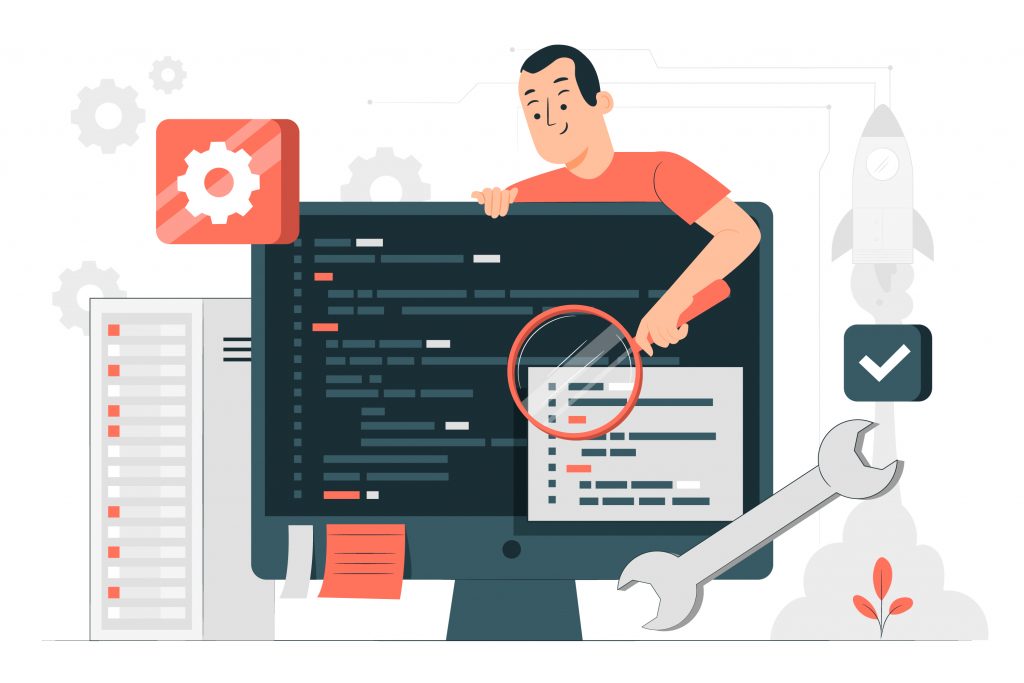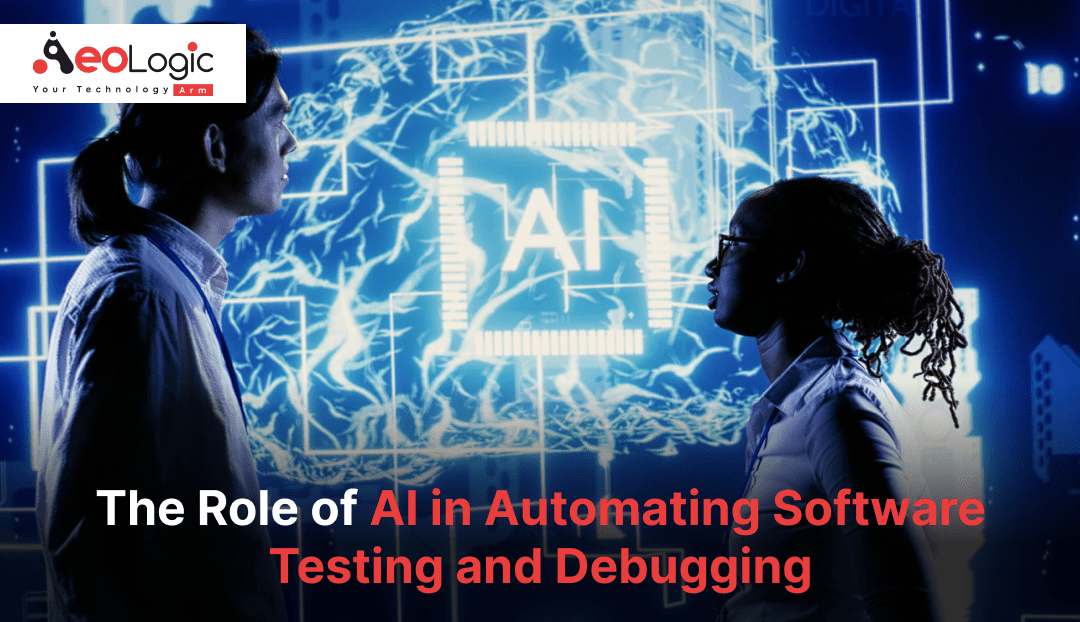The software market is growing every year as every organization is developing its different kinds of applications or software. Software is everywhere, in the education sector, corporate sector, manufacturing sector, government sector, etc. The global software market size was USD 659.17 billion in 2023, calculated at USD 736.96 billion in 2024, and is expected to reach around USD 2,248.33 billion by 2034, expanding at a CAGR of 11.8% from 2024 to 2034. These stats show the domination of software in today’s digital world.
The Importance of Software Testing and Debugging
Generally, software development engineers develop the software. There can be an organization that takes projects of developing software and completes them within the period for their clients. Software development is not an easy task as there are many stages of development, and testing and debugging are the important ones. Testing software in the development period is important as this makes sure that the software works well or not. Debugging generally refers to the process of finding bugs, and errors during the testing period and appropriately fixing them.
It is important to test software regularly but it cannot be possible if engineers give their time to repetitive testing then more complex tasks remain. Also, difficult to detect minor issues in codes which can take a lot of time. Accuracy is always a matter of talk while doing development with the engineers as humans surely make mistakes. This is also a problematic situation to predict the bugs.
Also Read: Key Benefits of Software Testing for Your Business
The Role of AI in Automating Software Testing and Debugging

To solve all the above-mentioned issues related to software testing and debugging, Artificial intelligence can play an important role. AI has the potential to enhance software testing and debugging with automation and many other benefits. The adoption of AI for software testing solutions is growing rapidly, driven by its ability to enhance accuracy, speed, and efficiency. Forbes forecasts a 37.3% increase in the use of AI for software testing between 2023 and 2030, highlighting its significant role in the future of quality assurance.
As artificial intelligence can improve scalability, speed, and efficiency while guaranteeing consistent and trustworthy test results, it is crucial for automating software testing and debugging. Artificial intelligence minimizes the need for thorough manual testing and associated expenses by identifying bugs early and responding to changes in the program.
In this article, we will see the role of AI in automating software testing and debugging. We will also go through the other details like benefits, challenges, etc, and will end with a conclusion.
What is AI in Automating Software Testing And Debugging?
Artificial intelligence (AI) refers to the application of AI tools and methods for software testing and debugging that are automated, to improve and expedite software testing and bug-finding procedures. This involves automating tedious operations to increase productivity and using machine learning algorithms to create test cases, evaluate code, and identify possible flaws.
Organizations may support faster development approaches by integrating AI into software testing and debugging processes, which will lead to faster testing cycles, increased accuracy, and better software quality. Overall this could be the evolution in the software development world that enables us to provide more advanced software in less period.
Also Read: Importance of Quality Assurance and Testing in Software Development
Benefits of AI in Automating Software Testing and Debugging
There are many benefits of AI in automating software testing and debugging as here are a few key benefits mentioned below.
Test Automation
As mentioned earlier, continuous testing of software is necessary to find out the bugs at an early stage. However, it cannot help to increase productivity if an engineer continuously gives time to repetitive testing. With AI, repetitive testing can be automated so that it can test more times in less period. This also allows employees or engineers to focus on more complex tasks. This helps to increase efficiency and productivity.
Automated Bug Detection
Bug detection is also a tough task as small bugs cannot be detected easily, which could be a headache for engineers and organizations. However, through code pattern analysis and anomaly detection, artificial intelligence solutions can automatically find flaws during the development process. This proactive strategy aids in the early detection of problems during the software development lifecycle.
Performance Testing
Performance testing is another important aspect in software development as software should test its performance in various conditions and user loads. However, it is a long process to make real-world users use the software and find out the bugs. Also, there could be a high chance of not getting fully efficient feedback. Where Artificial Intelligence can forecast application performance in a variety of scenarios and simulate different user loads. This aids in the detection of bottlenecks and the deployment of optimal resource allocation.
Enhances Collaboration
There are many people behind the development of software and it is important to have better communication and collaboration among them. A better understanding of each other makes software testing and debugging more productive. With the use of insights and analytics, AI tools may help developers and testers communicate more effectively by bringing teams together around quality goals.
Accuracy
Manual testing is generally not fully accurate every time creates problems in launching and takes so much time to fix all issues or bugs in better ways. But with AI, it can minimize the need for human testing. Which lowers the possibility of oversight and mistakes brought on by preoccupation or weariness.
Also Read: The Role of Collaboration and Communication in Successful Testing
Challenges with AI in Automating Software Testing and Debugging
We have seen a lot of benefits of AI in automating software testing and debugging. Now we have to look for some potential challenges with AI for software testing and debugging. Here are a few concerns or challenges mentioned below.
- Integration of AI in existing testing systems can be a complex and time-consuming task that can be a challenge for many.
- AI models need continuous maintenance and updates that can reduce maintenance costs. Its implementation cost is also too much and maintenance costs can be unaffordable for many organizations.
- The skill gap can be another challenge as there is less possibility to have professionals who have proficiency in software testing and in AI too.
Also Read: The Benefits of Effective Software Testing Processes
Final Words
Automation of software testing and debugging is revolutionized by AI, which greatly improves coverage, accuracy, and efficiency. AI enables teams to produce high-quality software more quickly by automating monotonous jobs, assisting in early problem discovery, and integrating smoothly into development workflows. There could be a few challenges as we have mentioned in the previous paragraph but that should be overcome with the development and advancement in this digital world.
Overall, implementing AI will be essential for preserving competitive advantage and guaranteeing reliable software performance as technology advances in an ever-changing digital environment.
For a seamless software experience and top-notch testing solutions, connect with the experts at Aeologic Technologies. Let us guide your business towards digital excellence.

I’m Deepika Pandey, an SEO strategist and content writer with 6+ years of experience. I create SEO-friendly content that drives traffic and engages readers. I combine data insights with creativity to help businesses grow their online presence effectively.







